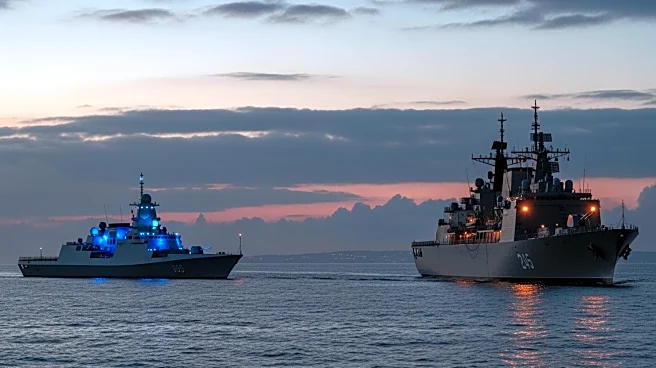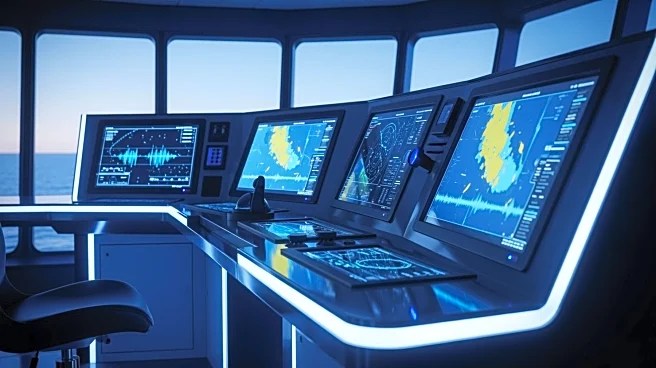What's Happening?
Admiral Daryl Caudle, the top U.S. admiral, has expressed concern over China's rapid naval expansion, describing its shipbuilding capabilities as 'impressive.' During his visit to Japan, part of a 10-day
tour of the Asia-Pacific, Caudle highlighted the importance of U.S. cooperation with Asian allies such as South Korea and Japan to enhance America's shipbuilding capabilities. China recently commissioned its latest aircraft carrier, Fujian, and began sea trials of its most advanced amphibious assault ship. Although China's navy has more ships than the U.S. Navy, it lacks in aircraft carriers and amphibious assault ships. Caudle emphasized the significance of regional partnerships, noting the combined force of allies like Japan, South Korea, and Australia. His visit coincides with Japan's conservative new prime minister suggesting a potential military response to a Chinese move against Taiwan, stirring regional tensions.
Why It's Important?
The expansion of China's naval capabilities poses strategic challenges for the U.S. and its allies in the Asia-Pacific region. The U.S. aims to counterbalance China's growing influence by strengthening alliances with regional partners. This development is crucial for maintaining stability and security in the region, particularly in light of potential conflicts involving Taiwan. The U.S. and its allies stand to benefit from enhanced cooperation, which could lead to increased military readiness and deterrence capabilities. However, China's naval growth could shift the balance of power, affecting U.S. interests and regional security dynamics.
What's Next?
Admiral Caudle's visit underscores the ongoing efforts to bolster U.S. shipbuilding capabilities through partnerships with Japan and South Korea. The recent agreement with South Korea to develop a nuclear-powered submarine is in its early stages, and Japan has shown interest in similar developments, though public resistance may arise due to historical nuclear sensitivities. The U.S. and its allies are likely to continue monitoring China's naval activities closely, with potential diplomatic and military responses to any aggressive actions in the region.
Beyond the Headlines
The naval expansion by China could lead to long-term shifts in regional security policies and alliances. Ethical and cultural considerations may arise, particularly in Japan, where nuclear-powered military developments could face public opposition due to the country's non-nuclear principles. The situation may also influence global naval strategies and defense spending, as countries assess their military capabilities in response to China's growing influence.









